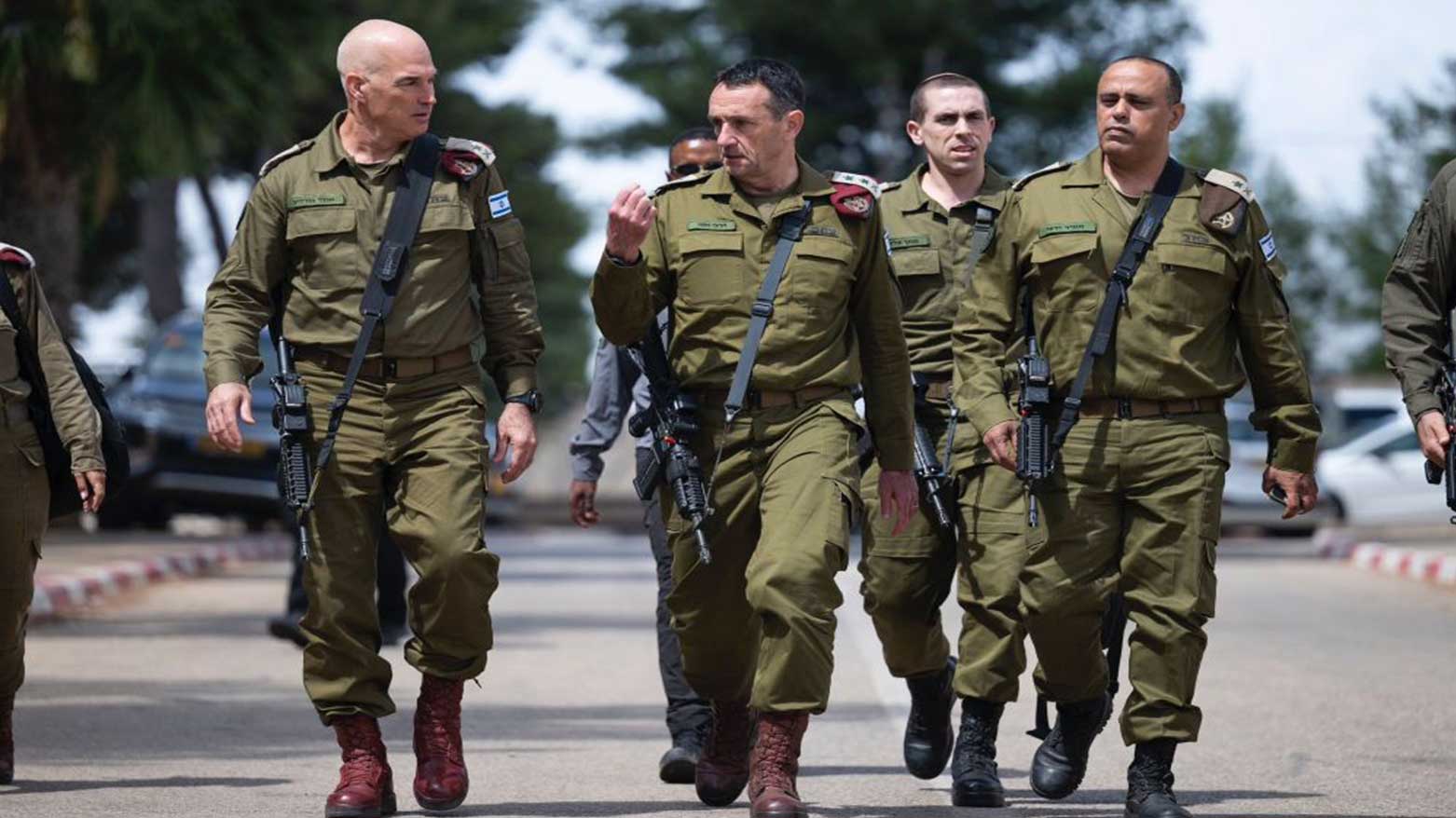Israel Steps Up Strikes on Hezbollah as Lebanon Fails to Honor Disarmament Pledge
“Hezbollah is playing with fire, and the president of Lebanon is dragging his feet,” said Israel Katz. “The Lebanese government’s commitment to disarm Hezbollah and remove it from southern Lebanon must be implemented."

ERBIL (Kurdistan24) — Israel warned Sunday that it would intensify its military operations against Hezbollah in southern Lebanon, citing Beirut’s failure to disarm the Iran-backed militant group in accordance with the ceasefire agreement signed in November 2024.
The warning came a day after Lebanon’s health ministry said four people were killed in an Israeli airstrike in the southern Nabatiyeh district.
The Israeli military later confirmed the strike, stating that it had targeted a member of Hezbollah’s elite Radwan Force involved in weapons transfers and efforts to reestablish the group’s infrastructure near the border.
“Hezbollah is playing with fire, and the president of Lebanon is dragging his feet,” Israeli Defense Minister Israel Katz said in a statement. “The Lebanese government’s commitment to disarm Hezbollah and remove it from southern Lebanon must be implemented."
"Maximum enforcement will continue and even intensify — we will not allow any threat to the residents of the north.”
Despite the U.S.-brokered ceasefire, Israel has maintained a limited presence in five strategic zones in southern Lebanon and continues to conduct precise strikes on Hezbollah targets.
The move reflects growing frustration in Jerusalem and Washington over Beirut’s inability—or unwillingness—to assert control over its own territory and curb the militia’s activities.
Lebanon’s Unfulfilled Commitments
Under the terms of the 2024 ceasefire, Lebanon’s government pledged to remove Hezbollah fighters and heavy weapons from the southern border region in compliance with United Nations resolutions.
However, almost a year later, Hezbollah remains entrenched across the area, operating outside state authority and maintaining thousands of rockets, drones, and advanced munitions supplied by Iran.
U.S. officials have repeatedly emphasized that Lebanon’s failure to implement the disarmament clause constitutes a direct violation of both the ceasefire terms and international law.
The presence of Hezbollah’s 40,000-strong militia continues to undermine the authority of the Lebanese Armed Forces, whose soldiers are underpaid, poorly equipped, and unable to match the group’s military strength or discipline.
Speaking at the Manama Dialogue in Bahrain on Saturday, U.S. Special Envoy for Syria Tom Barrack described Lebanon as a “failed state,” pointing to the collapse of its financial institutions, electricity grid, and essential public services.
Barrack stressed that “any meaningful diplomatic progress regarding Lebanon must involve direct talks with Israel,” highlighting that the Lebanese state’s inability to govern or enforce sovereignty has emboldened Iran’s proxies.
He noted that “the conversation needs to be with Israel — Israel is ready,” signaling Washington’s growing impatience with Beirut’s stalled reforms and its tolerance of Hezbollah’s parallel army.
Hezbollah’s Persistent Threat
Hezbollah, once considered a resistance movement, has long evolved into a heavily armed state within a state, sustaining Iran’s regional strategy and exerting direct influence over Lebanon’s political and military institutions.
Over the past year, its forces have launched rocket and drone attacks not only into northern Israel but also against critical infrastructure in the Kurdistan Region of Iraq—operations that Iraqi government investigations traced back to Iran-backed groups.
The group’s persistent militarization continues to erode Lebanon’s sovereignty and isolate the country diplomatically, even as Western governments extend aid and political support to President Joseph Aoun’s administration.
Yet, Aoun’s reluctance to act against Hezbollah has drawn sharp criticism from both Israeli and American officials, underscoring their waning patience with his leadership, which is increasingly viewed as part of the broader Iranian-aligned network obstructing regional stability.
Following the 2023 Gaza war and Hezbollah’s subsequent attacks on northern Israel, tens of thousands of Israelis were forced to evacuate border communities.
The Israeli government insists that restoring security for its citizens requires neutralizing the Hezbollah threat entirely—a goal it says Lebanon has consistently failed to pursue.
Israeli officials argue that Lebanon’s Christian-led government has allowed Hezbollah to dictate national security policy, effectively surrendering state sovereignty.
The killing of Hezbollah leader Hassan Nasrallah in 2024, alongside several of the group’s senior commanders, dealt a major blow to the organization but failed to dismantle its military presence.
In recent weeks, Israel’s air and ground operations have become more frequent and targeted. Israeli intelligence sources say the goal is to degrade Hezbollah’s military infrastructure while pressuring Beirut to fulfill its commitments to the international community.
Observers say that unless Beirut acts decisively to enforce the ceasefire obligations and dismantle Hezbollah’s armed network, Israel is likely to continue its unilateral operations to safeguard its northern frontier.
As Defense Minister Katz made clear, “Israel will not allow any violation of its sovereignty or any threat to its citizens — those responsible will be held accountable.”
For Jerusalem, the message is unmistakable: the road to Lebanon’s peace and sovereignty begins with confronting Hezbollah, not appeasing it.